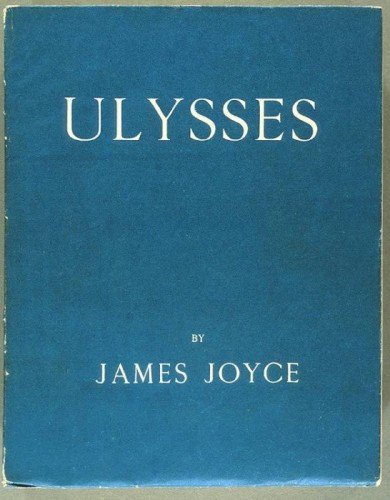The Five Stages of Reading a Very Long Novel
The last time I checked BuzzFeed, I noticed that there are a lot of great things to read besides gif captions. Some of those things are books, and some of those books are novels, and some of those novels are full of stirring, labyrinthine plots, original and exquisite metaphors, enduring truths about the human condition, and wizards. And some of those extraordinary novels are also very, very long.
Novels like this – over, say, 1,000 pages – are a defiant bunch, daring us to read them and then soundly defeating us. Whatever compels us to take them on, be it a preference for literary genius or a failing English grade, we systematically encounter the same Five Stages when Reading a Very Long Novel, from Intrigue to Payoff.
(By the way, I’m specifically addressing novels here, because why would anyone subject themselves to over 1,000 pages of non-fiction?)
Stage One: Intrigue
You’re walking through Easons, or browsing Kindle titles, when something catches your eye. Oh, so Ulysses IS a real book, you think, not some mythical literary creature that ancient book snobs/hipsters swallowed whole to fuel their own sense of self-importance. You read the description, balk at the page count, decide that you’re the rare, exceptional badass who likes a challenge, and make your purchase.
Stage Two: Swagger
At some point in the near or distant future, you sit down to begin reading Ulysses, or War and Peace, or Gone with the Wind, or whatever. You are enthusiastic, and smug, and naïve. You estimate that you will finish the book in two to three weeks, tops!
Stage Two: Swagger typically lasts between 100-200 pages. Sometimes it ends at Page Three. Nothing is happening yet (usually), and every character has approximately the same name (or, in the case of The Lord of the Rings, five separate names). You bookmark SparkNotes on your computer, adjust your reading schedule to a “more realistic” twenty pages per day, and go back to spending your commute browsing Twitter.
Stage Three: Suffering
If you make it past Stage Two, and into the chewy meat of the novel, you will probably be rewarded (briefly) with some actual plot. You can even distinguish one character from the next, sort of, and the verbose/stream-of-consciousness/ambiguous nature of the prose has grown familiar. But every time you glance down at the bottom of the page, another ounce of depression sets in: you still have 700 pages left of this nonsense. At the start of each new, infinite chapter, you feel more and more like a Russian woman run over by a train, slowly crushed under the weight of your shortsighted decisions.
Stage Four: Resolve
At roughly the 500-page mark, you are torn between a strong desire to abandon the effort and spend your newfound free time watching Scandal, and the judgment that you’ve already invested too much time and energy in the novel to quit now. The latter wins out, and you continue. Begrudgingly.
The stretch from 500 to 800 pages is probably the worst of all, unless something super interesting is happening, plot-wise. But let’s face it: this is unlikely, because we’re talking about an author who needed 1,000 pages to make their point. You know that once you reach the three-quarter mark, you’ll be on the home stretch, and momentum will carry you through to the end like a whaling ship over a sea of words. But you’re not there yet. You’re still slogging through the middle, both weary and impatient, swearing that the next book you read will be a dystopian thriller for teenagers.
Stage Five: Payoff
You finish. You close the book. You are happy but also traumatised. As you give yourself an imaginary pat on the back and/or throw yourself a very real pie party, you bask in the post-epilogue euphoria. You assume this feeling of triumph and superiority will last as long as it took to read the novel itself, but it won’t. It will disappear like a madeleine into a cup of tea and meet its watery, forgotten grave before you’ve even put the book back on the shelf.
You’ll leave that 1,000-page novel up there, though, like a trophy, like the spoils and the souvenir of your journey into Don Quixote or Les Misérables, until the creases in the spine are filled with dust. Because reading a very, very long novel feels a lot like climbing up a mountain and planting a flag at its peak: harrowing and exhilarating and inspiring and really kind of stupid, when you think about it, all at the same time. And while we may forget what it looks like after we’ve come back down, we only ever do it for the view from the top.


